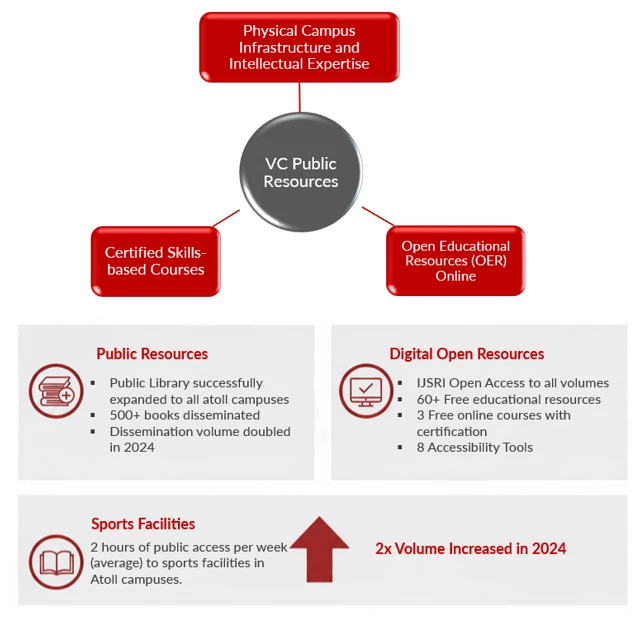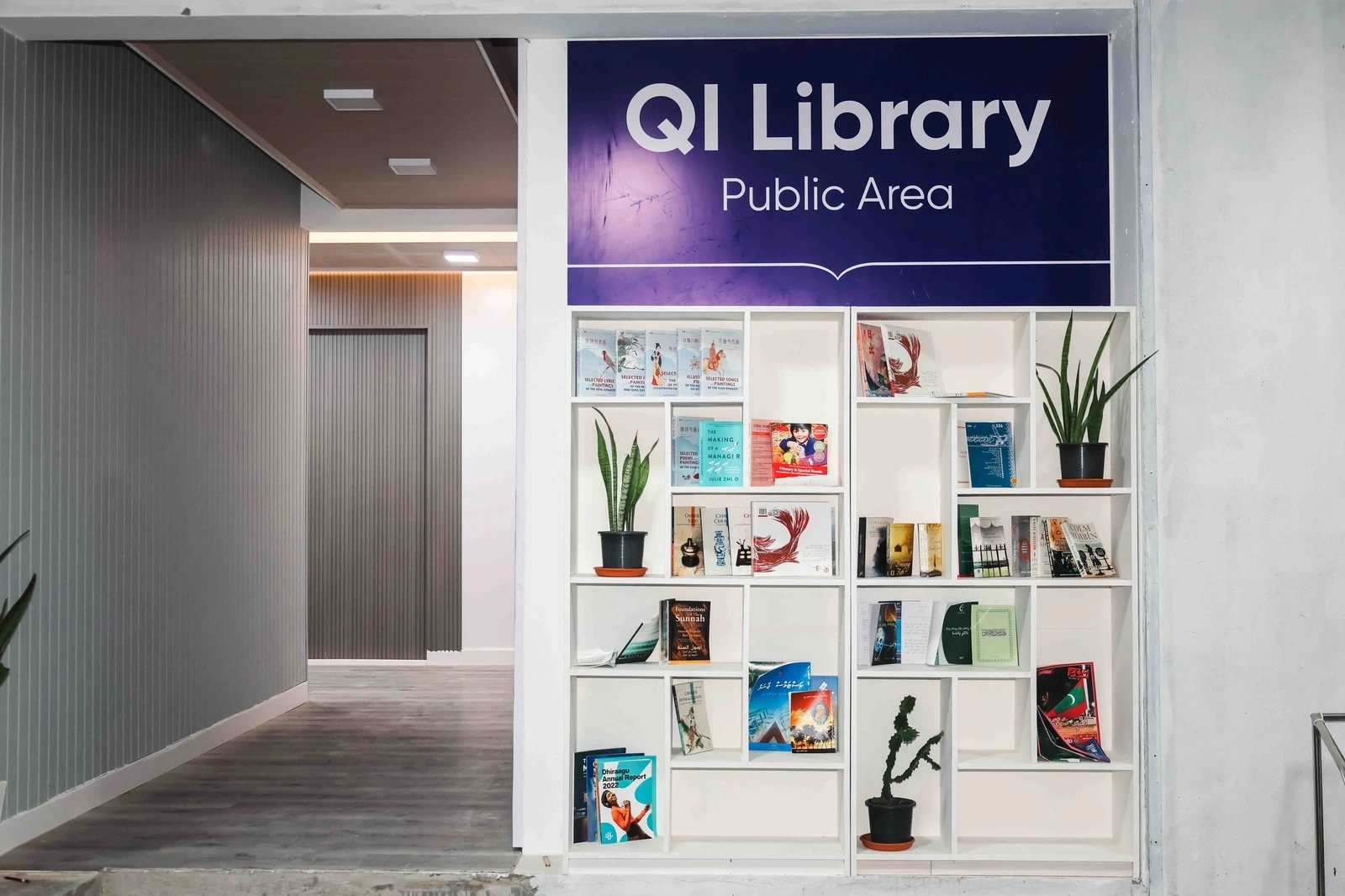Free Access to Academic Events and Resources for the Public: ÃÜÌÒÊÓƵ ensures its academic activities directly benefit the wider community through free access to advanced knowledge and campus resources.
Public Lectures and Workshops: The College hosted an extensive series of Public Lectures and Webinars that were open and free to all. These included the Australia-Maldives Dialogue Series on Youth Mental Health and a lecture on "Psychosocial Risks to Mental Health at Work" by an international professor, demonstrating open access to high-level academic discourse.
Symposiums, Conferences, and Research: ÃÜÌÒÊÓƵ provided free access to knowledge dissemination events, such as the Research Poster Fair 2024, which was open to the public to review and engage with the latest academic research findings and findings from the SSAPI project on psychosocial risks.
Campus Resources for School Students: The College actively encourages school students to visit and utilize its resources, bridging the gap between secondary and higher education. The College’s expertise and campus facilities are regularly opened to youth for exposure and exploration, directly impacting their career and academic planning. The College hosts numerous school groups on campus for immersive exposure trips. For instance, Sh. Funadhoo School students and O-level students from Himandhoo School visited College resources to explore the various academic pathways and career opportunities available.
Free Access to Online Resources through the Website:
ÃÜÌÒÊÓƵ ensures that geographical barriers do not restrict access to knowledge by providing extensive free access to open educational and academic resources via its website. This commitment directly addresses the criteria for free access to online resources, supporting students, educators, researchers, and the general public nationwide.
Open Access Research Journal: The College's flagship academic publication, the This ensures that all scholarly work and research findings, covering all nine published volumes, are available to the public free of charge, supporting research and innovation across the country. The College also publishes Research Digests, providing accessible summaries of complex research.
Open Educational Resources (OER):
The website hosts over essential guides, and subject-specific learning materials. This body of OER helps educators and independent learners access quality content for free.
Academic Databases and Tools: To support academic literacy, the website provides free links to , enabling non-enrolled individuals to conduct high-quality research.
Accessibility and Study Skills: The College is committed to inclusive learning, evidenced by the implementation of eight distinct accessibility tools on its website, ensuring that digital content is available to users with diverse needs. Furthermore, the website offers essential study skills resources in both written and video formats, helping members of the public enhance their learning techniques and academic performance at no cost.
Free Online Courses Leading to Certification:
ÃÜÌÒÊÓƵ directly provides avenues for professional upskilling and career development by offering free online courses, including those that lead to a formal certification.
Free Skills-Based Courses: The College offers
Certification and Recognition: Importantly, the completion of the Introduction to Sustainability course leads to official certification from ÃÜÌÒÊÓƵ. This not only provides valuable knowledge in a critical area of global concern but also equips participants with a verifiable qualification, significantly enhancing their professional resumes. This offering strongly underscores the College’s commitment to advancing sustainability literacy among the general public, a mission that is institutionally driven. Specifically, the course is managed and delivered by the Future Governance Mission, a dedicated department mandated with the responsibility of driving the College towards sustainability pathways and ensuring that the crucial knowledge of environmental and societal governance is freely disseminated to the wider community.



